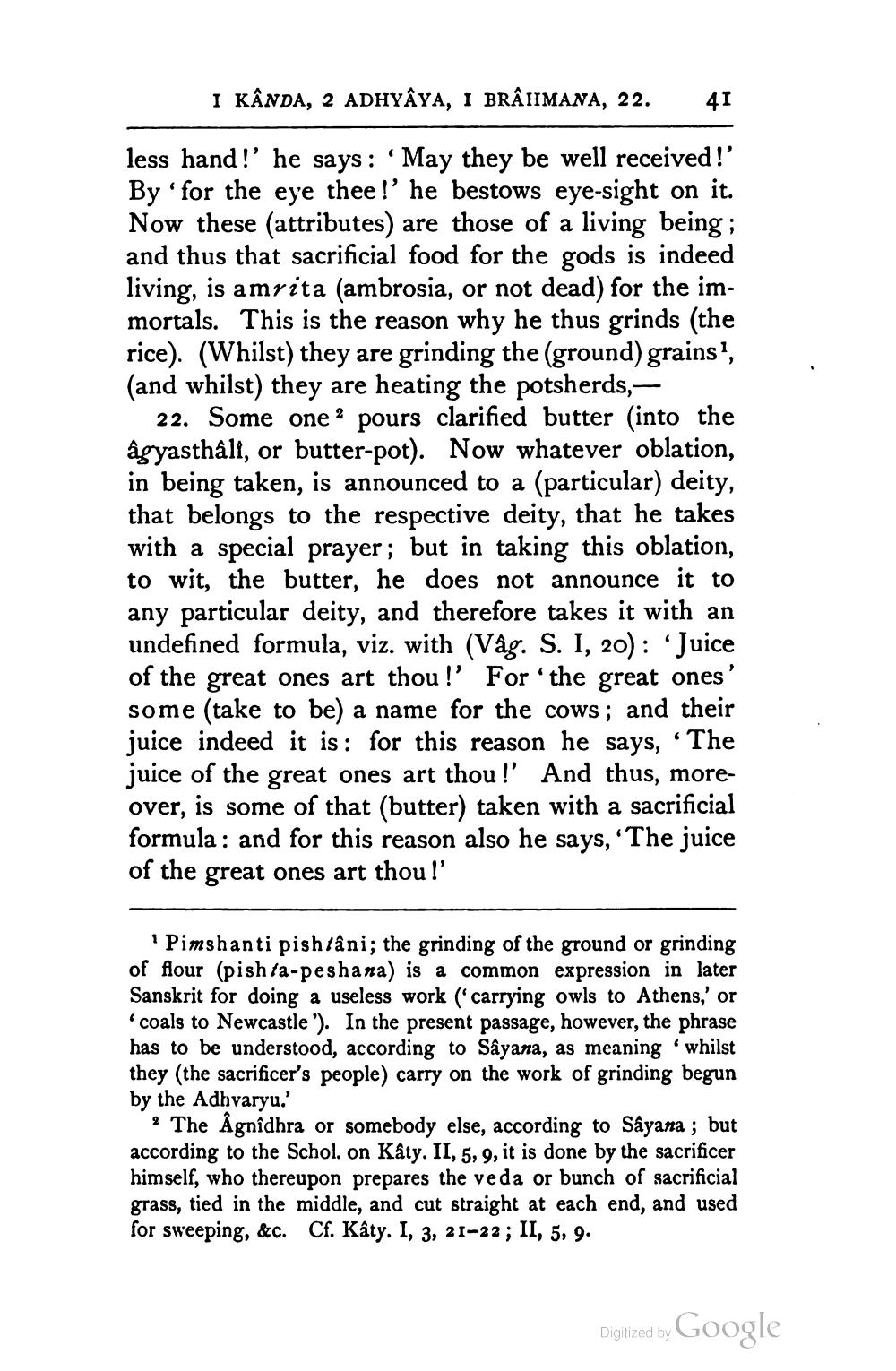________________
I KÂNDA, 2 ADHYAYA, I BRÂHMANA, 22.
41
less hand!' he says: “May they be well received !' By 'for the eye thee!'he bestows eye-sight on it. Now these (attributes) are those of a living being; and thus that sacrificial food for the gods is indeed living, is amrita (ambrosia, or not dead) for the immortals. This is the reason why he thus grinds (the rice). (Whilst) they are grinding the (ground) grains", (and whilst) they are heating the potsherds,
22. Some one ? pours clarified butter into the âgyasthåll, or butter-pot). Now whatever oblation, in being taken, is announced to a (particular) deity, that belongs to the respective deity, that he takes with a special prayer; but in taking this oblation, to wit, the butter, he does not announce it to any particular deity, and therefore takes it with an undefined formula, viz. with (Våg. S. I, 20): Juice of the great ones art thou !' For the great ones' some (take to be) a name for the cows; and their juice indeed it is: for this reason he says, 'The juice of the great ones art thou !' And thus, moreover, is some of that (butter) taken with a sacrificial formula : and for this reason also he says, 'The juice of the great ones art thou l'
'Pimshanti pishtâni; the grinding of the ground or grinding of flour (pish ta-peshana) is a common expression in later Sanskrit for doing a useless work carrying owls to Athens,' or 'coals to Newcastle'). In the present passage, however, the phrase has to be understood, according to Sayana, as meaning whilst they (the sacrificer's people) carry on the work of grinding begun by the Adhvaryu.'
The Agnîdhra or somebody else, according to Sayana ; but according to the Schol. on Kâty. II, 5, 9, it is done by the sacrificer himself, who thereupon prepares the veda or bunch of sacrificial grass, tied in the middle, and cut straight at each end, and used for sweeping, &c. Cf. Kâty. I, 3, 21-22; II, 5, 9.
Digitized by Google




